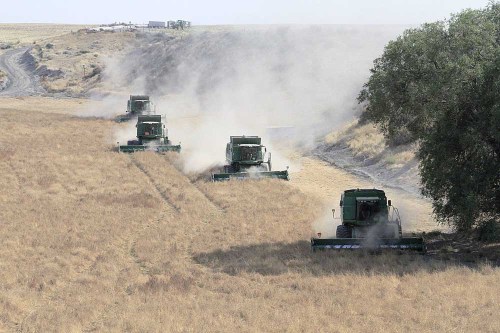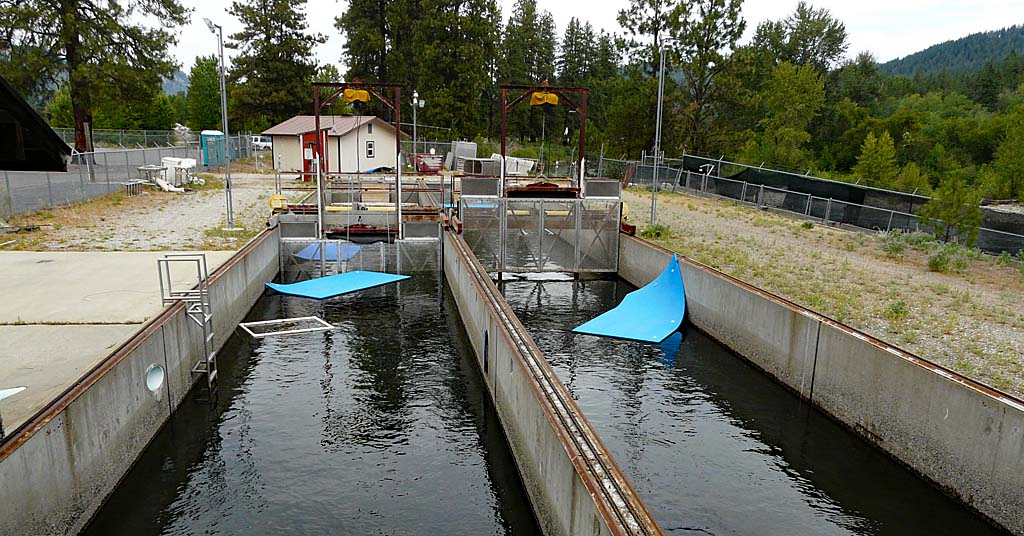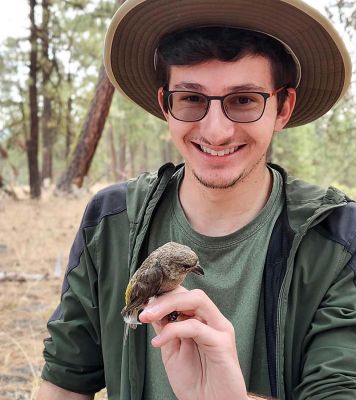Oregon House votes to disband state alfalfa seed commission
Published 12:30 pm Tuesday, February 7, 2023

- Combines harvest alfalfa seed. The Oregon House has voted unanimously to disband the Oregon Alfalfa Seed Commission, which no longer has enough farmers to sustain the research and promotions program.
SALEM — The winds of change seem ready to sweep away the Oregon Alfalfa Seed Commission, as the crop’s remaining growers cannot sustain the research and promotions program.
Assessments paid by farmers have declined too much to support the commission, which the Oregon House voted unanimously to disband on Feb. 7 under House Bill 2411. The proposal will now be considered by the Senate.
Trending
“We just don’t have enough growers anymore,” said Curt Sisson, president of the Oregon Alfalfa Seed Commission.
Fewer than 10 alfalfa seed producers remain in the state, down from about 300 two decades ago, which isn’t sufficient to cover the commission’s required record-keeping costs, he said.
“We don’t bring in enough assessment to even pay the bills,” Sisson said.
The commission was established by lawmakers in 1990, so dissolving it also requires the state Legislature’s approval. The number of commodity commissions in Oregon would drop to 22 if the alfalfa seed program is abolished.
“It is time to take it out of statute and make sure the remaining farmers don’t have this assessment on them,” said Rep. Mark Owens, R-Crane, who sponsored HB 2411.
Major changes in the alfalfa seed market began occurring in the 1970s and 1980s, when public land grant universities turned over the crop’s breeding to private companies, said Sisson.
Trending
Alfalfa seed production was initially decentralized, with numerous “mom and pop seed shops” across the West, but it’s now concentrated in the hands of a few agribusiness companies, he said.
“We basically saw buyout after buyout after buyout of these small seed companies,” Sisson said.
These large companies have largely shifted alfalfa seed production to southern Canada, which has fewer pest problems due to its colder winters and shorter history with the crop, he said.
“They are starting to inherit the bug issues up there but it’s not nearly as bad as it is here,” Sisson said.
The volumes of alfalfa seed and other specialty seeds are too small for major pesticide companies to develop specific chemicals for, he said. Instead, the industry must try to win regulatory approval to use sprays that are meant for major commodities, such as corn, soybeans and cotton.
“The bugs are getting harder and harder to control,” Sisson said.
Lygus bugs are a particular threat to alfalfa seed production, since they affect practically every stage of the plant’s reproduction: preventing bloom, stripping flowers and destroying seeds, he said.
“It won’t be a reduced crop. It will be at zero,” Sisson said. “If you can’t stop them, they will wipe it out entirely.”
Initially, the commission was able to fund research into alfalfa seed problems, but its revenues have diminished to the point that returning the money to farmers makes more sense, said Edith Kressley, the commission’s administrator.
Kressley said she’s “getting way up there” in years and believes dissolving the commission is for the best, having witnessed the state’s steady decline in alfalfa seed production.
“It’s been a long, slow saga,” she said. “It just kept sliding down.”









